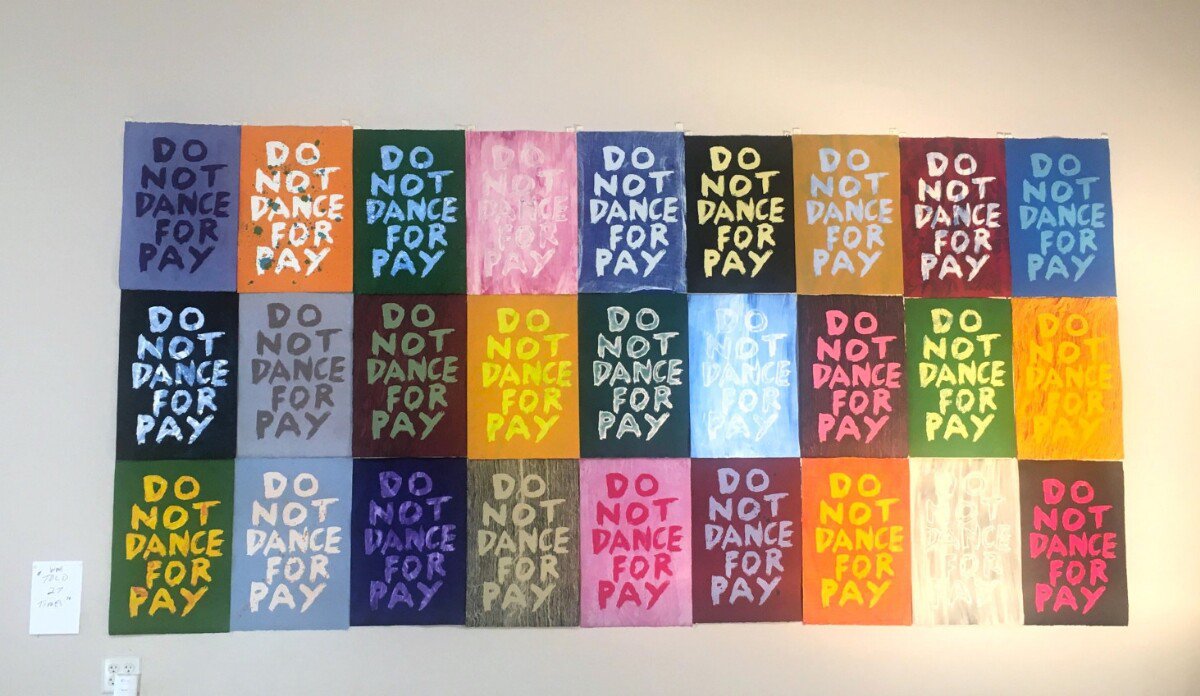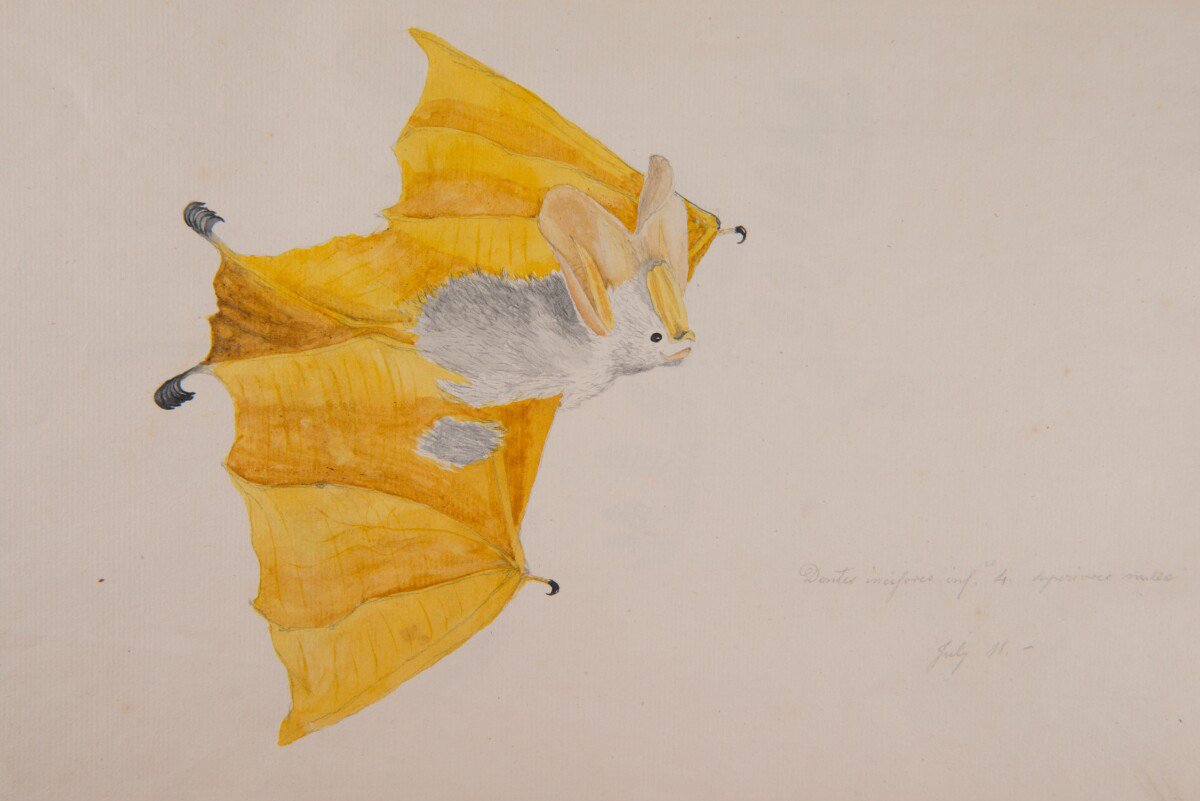Getty Awards over $1 Million to Fund Curatorial Innovation

The Getty Foundation has awarded 13 new grants totaling nearly $1.3 million to support curatorial innovation in the graphic arts as part of its Paper Project initiative.
The grants support diverse training projects, including a workshop in at the University of Virginia featuring the largest collection of Aboriginal art outside of Australia, a collaborative examination of the Royal Botanic Garden Edinburgh’s prints and drawings collection through the lens of decolonization, and the chance to learn about the prints of Edgar Heap of Birds and other Indigenous artists at Oklahoma Contemporary.
The Paper Project supports ambitious curators of prints and drawings who want to raise the visibility of works on paper. These collections are often some of the largest holdings in many museums. In addition to funding curatorial projects that share new research about understudied artists and artworks, Getty has also helped graphic arts professionals with training residencies, workshops, and seminars that bring scholars together to deepen their knowledge of the many materials and techniques used for centuries by artists working on paper. 2024 is the final year of grantmaking for the initiative, which has to date provided $8.7 million in grants to 72 institutions worldwide.

“The breadth of artmaking processes and materials found in paper collections is expansive, so we shaped this final round of grants for curators to learn as much as they could about everything from retouching and pastels to artists’ books and prints on fabric,” says Heather MacDonald, senior program officer at the Getty Foundation. “Everyone who participates is sure to come away with new skills and ideas for sharing these works of art with the public. It’s so rare for paper curators to get opportunities like these.”
The new training programs build on successful workshops and seminars over the last five years organized by the Association of Print Scholars, the Morgan Library, the Courtauld Institute, Dresden’s renowned Kupferstich-Kabinett, and more. All of the Getty-funded programs include collection visits to study objects up-close with expert curators, conservation scientists, and scholars. They also offer the chance for participants to try out techniques themselves, such as making their own lithographs and etchings at professional print shops like Tamarind Institute or High Point Press.
“The hands-on learning curators will get in the Paper Project workshops will be transformative,” says Edouard Kopp, chief curator of the Menil Collection’s Menil Drawings Institute, who co-organized one of the earliest Paper Project workshops at the Harvard Art Museums in 2019. “The opportunity to engage with a group of peers and noted conservators, historians of techniques, papermakers and artists is invaluable. It is bound to greatly deepen and enrich the participants’ understanding of the materiality of paper and drawing materials, and in turn to shed light on artists’ working practices.” In June, Kopp and the team at the Menil will hold one of the earliest programs, which stretch into next spring with a trio of programs in Europe.
Grant Highlights
While Australian Indigenous art has received increased global attention in the last few decades, the innovative engagement of these artists with printmaking has remained largely overlooked. The University of Virginia’s Kluge-Ruhe Aboriginal Art Collection—the only museum outside Australia dedicated to Indigenous Australian arts—will organize a workshop for Indigenous curators, leveraging a recent gift from Australian master printer Basil Hall of over 1,300 prints made by hundreds of Indigenous artists over the last 40 years. The workshop also includes interactive printmaking demonstrations and visits to related collections at the Smithsonian’s National Museum of the American Indian.
Today’s global conversation about decolonizing collections extends beyond art museums to botanical gardens and natural history museums, where staff are grappling with how to acknowledge and move beyond colonial perspectives. A workshop hosted by the Royal Botanic Garden Edinburgh will draw on its holdings of 20,000 original artworks, prints, and photographic materials to build a network for shared learning and exchange. Participants will include stewards of scientific collections as well as curators and artists from regions where many of these collections originated, including Africa, Southeast Asia, the Caribbean, and South America.
Oklahoma Contemporary will host a workshop with local, national, and international curators and printmakers who engage with Indigenous artistic communities. Participants will work with Oklahoma artist Edgar Heap of Birds (Cheyenne and Arapaho Nation), known internationally for his colorful monotype prints, public works, and etchings that address Indigenous rights, sovereignty, and land stewardship. Curators and printmakers will be invited to consider how printmaking challenges the narrative of the lone artist, reflecting the types of values sought by Indigenous artists—knowledge sharing, support, and collective space—that together make a creative community distinctive, resilient, and culturally generous.
List of Grantees (by date of program)
University of Virginia—for a workshop on indigenous Australian Prints, organized by the Kluge Ruhe Aboriginal Art Collection (Spring 2024)
Kupferstichkabinett, Staatliche Museen zu Berlin—for a workshop on the prints and drawings of Lucas Cranach the Elder, organized in partnership with the Kupferstich-Kabinett, Staatliche Kunstsammlungen Dresden (May 2024)
Menil Collection—for the workshop Inside Drawings, organized by the Menil Drawing Institute (June 2024)
Royal Botanic Garden Edinburgh—for a workshop on decolonial curatorial practice for collections of scientific prints and drawings (Fall 2024)
Center for Book Arts—for a workshop on new best practices for the exhibition and interpretation of artists’ books (October 2024)
Newberry Library—for a workshop on early modern printings on fabric (October 2024)
Bibliotheca Hertziana/Lise Meitner Group—for a workshop on premodern practices of retouching, organized in partnership with the Istituto Centrale per la Grafica (November 2024)
Oklahoma Contemporary—for a workshop on viscosity monotype and intaglio focused on the printmaking practice of Edgar Heap of Birds (November 2024)
Rijksmuseum—for a workshop on inscriptions and marks on Dutch old master drawings (early 2025)
Dieu Donné Paper Mill—for a workshop on hand papermaking for curators of prints and drawings (tentatively February 2025)
Universiteit van Amsterdam—for the traveling seminar Exploring the Materiality of Powdered Colors (April 2025)
Universalmuseum Joanneum—for a workshop on approaches to Austrian and South German Baroque drawings and prints organized by Alte Galerie and Schloss Eggenberg (May 2025)
University of New Mexico—for a workshop on lithography for curators of prints and drawings organized by Tamarind Institute (May 2025)